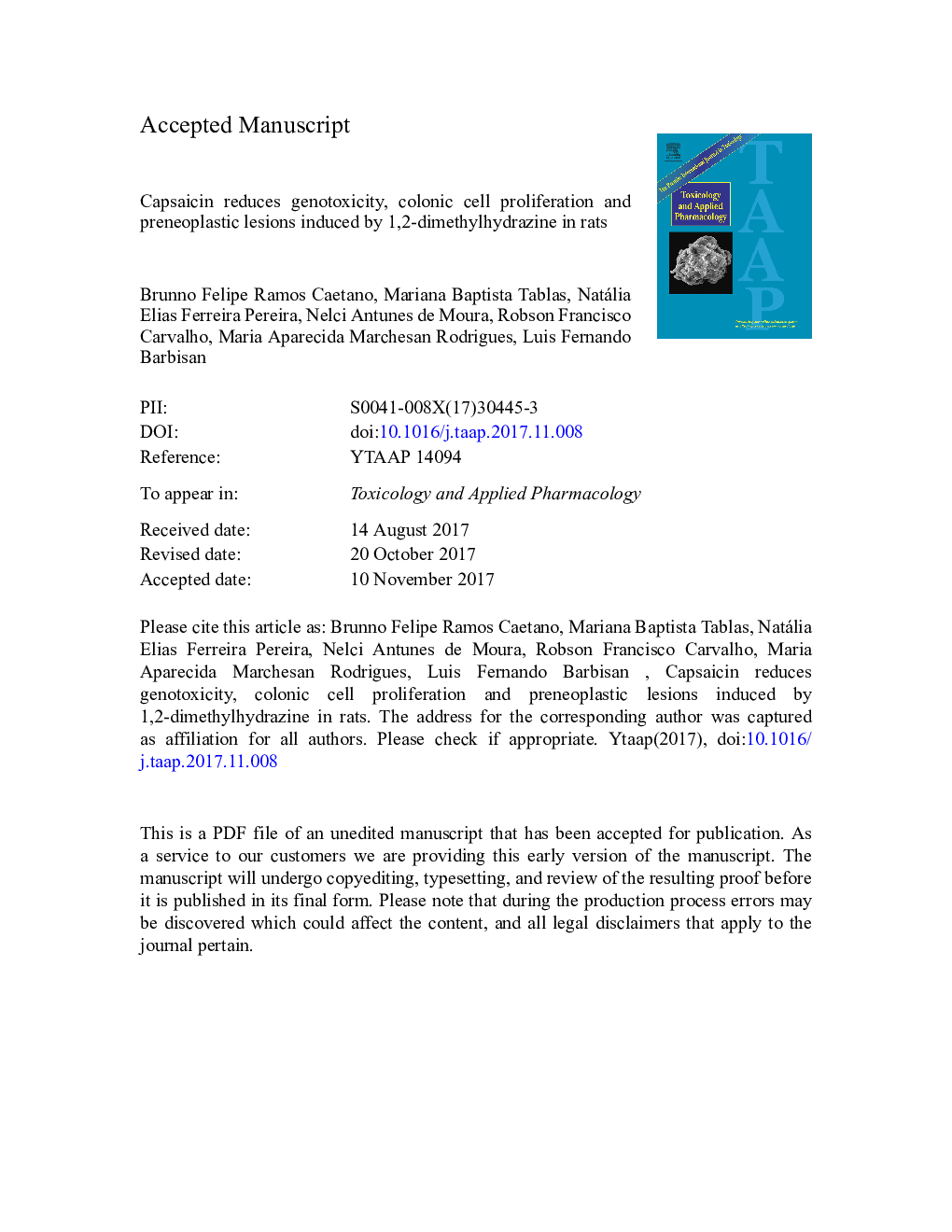| کد مقاله | کد نشریه | سال انتشار | مقاله انگلیسی | نسخه تمام متن |
|---|---|---|---|---|
| 8538989 | 1561124 | 2018 | 35 صفحه PDF | دانلود رایگان |
عنوان انگلیسی مقاله ISI
Capsaicin reduces genotoxicity, colonic cell proliferation and preneoplastic lesions induced by 1,2-dimethylhydrazine in rats
ترجمه فارسی عنوان
کپسایکین باعث کاهش سمیت ژنتیکی، تکثیر سلول های کولون و ضایعات پریئولوپلاستی ناشی از 1،2-دی متیل هیدرازین در موش صحرایی
دانلود مقاله + سفارش ترجمه
دانلود مقاله ISI انگلیسی
رایگان برای ایرانیان
کلمات کلیدی
کپسایسین، سرطان کولون، پیشگیری شیمیایی،
موضوعات مرتبط
علوم زیستی و بیوفناوری
علوم محیط زیست
بهداشت، سم شناسی و جهش زایی
چکیده انگلیسی
Capsaicin (8-Methyl-N-vanillyl-(trans)-6-nonenamide) is the major pungent ingredient found in chili peppers consumed worldwide. Most reports on capsaicin potential carcinogenicity have yielded inconsistent findings. Some studies have shown that capsaicin exerts anti-proliferative and pro-apoptotic effects on different cancer cell lines, while others have reported an association between capsaicin at high doses with mutagenicity and carcinogenicity. Thus, this study aimed at assessing the effects of capsaicin administration on 1,2-dimethyl-hydrazine (DMH)-induced colon carcinogenesis in male Wistar rats. Our results show that capsaicin administration, before and during carcinogen exposure, modified DMH-induced cytotoxicity and genotoxicity, promoting anti-proliferative and pro-apoptotic responses through the expression of the genes involved in apoptosis, cell cycle suppression and cell/tissue differentiation. Furthermore, capsaicin reduced aberrant crypt foci (ACF) number and multiplicity, although there were no differences in tumor incidence and multiplicity among the groups. Taken together, the results suggest that capsaicin may have a preventive effect against DMH-induced colorectal carcinogenesis.
ناشر
Database: Elsevier - ScienceDirect (ساینس دایرکت)
Journal: Toxicology and Applied Pharmacology - Volume 338, 1 January 2018, Pages 93-102
Journal: Toxicology and Applied Pharmacology - Volume 338, 1 January 2018, Pages 93-102
نویسندگان
Brunno Felipe Ramos Caetano, Mariana Baptista Tablas, Natália Elias Ferreira Pereira, Nelci Antunes de Moura, Robson Francisco Carvalho, Maria Aparecida Marchesan Rodrigues, Luis Fernando Barbisan,
